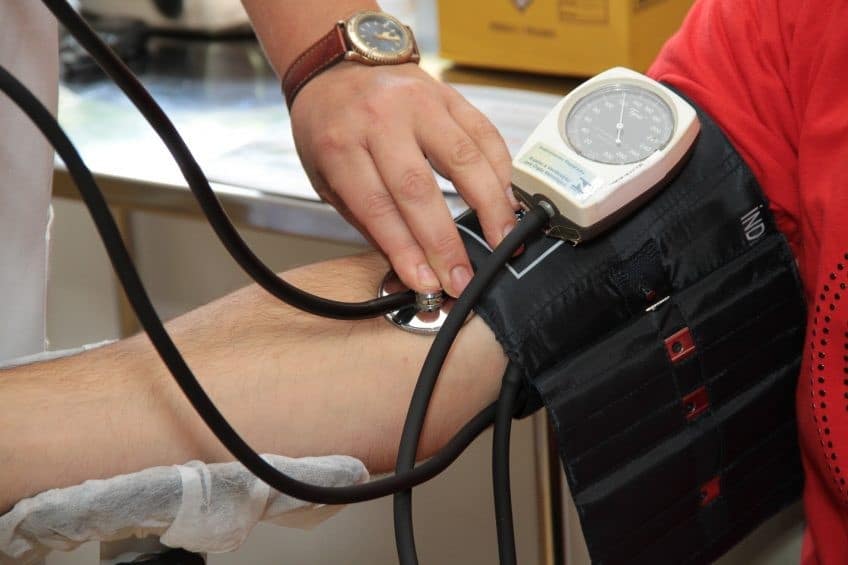Ex Parte Interviews Unconstitutional In Weaver v. Myers
Medical MalpracticeIn Weaver v. Myers, (Case Number SC15-1538)(Fla. 2017), the Florida Supreme Court held that ex parte communications with a plaintiff’s treating physicians as part of the medical malpractice pre-suit process is unconstitutional. In addition, the Court held that a person does not lose their rights to privacy in litigation upon death. This post updates previously written content about this case during oral arguments.
2013 Florida Medical Malpractice Amendments Deemed Unconstitutional
The 2013 Florida Med Mal amendments broadened reforms made in 2011 to the pre-suit process. Failure to comply with these “reforms” would operate to “void” the entire pre-suit process and thus potentially make the plaintiff’s claim into a lost cause, particularly if the statute of limitations was near.
Specifically in 2013, the Florida Legislature passed section 766.106(6)(b)(5) and says:
5. Interviews of treating health care providers.—A prospective defendant or his or her legal representative may interview the claimant’s treating health care providers consistent with the authorization for release of protected health information. This subparagraph does not require a claimant’s treating health care provider to submit to a request for an interview. Notice of the intent to conduct an interview shall be provided to the claimant or the claimant’s legal representative, who shall be responsible for arranging a mutually convenient date, time, and location for the interview within 15 days after the request is made. For subsequent interviews, the prospective defendant or his or her representative shall notify the claimant and his or her legal representative at least 72 hours before the subsequent interview. If the claimant’s attorney fails to schedule an interview, the prospective defendant or his or her legal representative may attempt to conduct an interview without further notice to the claimant or the claimant’s legal representative.
MedMal Pre-Suit “Gamesmanship”
This is where Dr. Myers’ attorney decided to go after the plaintiff (Weaver). Mrs. Weaver brought a medical malpractice lawsuit against Dr. Myers alleging that negligent medical care caused her husband’s death. Weaver v. Myers is 81 pages long. I will save you the reading here.
Dr. Myers eventually moved for summary judgment for what appears to be Mrs. Weaver asserting her rights to privacy in not disclosing her own medical history in addition to her husband’s. It is important to note that filing a medical malpractice or personal injury claim often places the claimant’s entire medical history at issue with few exceptions.
In the context of these arguments, it appears that the constitutional challenge to section 766.106 ensued.
Striking Down Ex Parte Interviews
Again, Weaver v. Myers is 81 pages long. The important part to Florida medical malpractice claimants is that section 766.106(6)(b)(5), Fla. Stat. is unconstitutional with regard to ex parte (one-sided) interviews.
Having initiated a number of medical malpractice cases myself over the years, I have not personally seen the defendant doctor’s attorneys seek to interrogate the plaintiff’s treating physicians. Doing so would essentially places other doctors in questionable situations where they may not be sure whether they can legally answer certain questions and the interrogated doctors would have to hire their own counsel to know whether they are acting appropriately by answering a question.
This is just something that was not taking place in the world of medical malpractice for the most part but yet was part of the law “on the books.”
Putting all of the legal details and nuances aside, it is fundamentally unfair to allow one side to question the other side’s doctors outside their presence. This simply violates every principle of “due process of law” and essentially functions as a unreasonable restraint on a person’s access to the court system.
As trial lawyers, we thought the 2013 amendment to section 766.106 was unfair and unconstitutional and it has taken four years to officially stop the damage done by a bad law.
Death Does Not Affect Right To Privacy
The second, although more discussed, element of this case is that of the decedent’s right to privacy. As mentioned above, a medical malpractice claimant gives up most rights to claim privacy in relation to healthcare when bringing a medical malpractice claim. The reason for this is because a person’s health is often directly at issue for purposes of liability, damages, or both.
Without over analyzing, the death of a medical malpractice claimant does not mean that the decedent has fewer privacy rights than victims of medical malpractice who survived. Instead, they are the same.
What To Look Out For In Your Case
If want to you file a medical malpractice case in Florida, you need to have successfully completed the pre-suit process. Your claim may be “voided” entirely by a failure to comply with pre-suit requirements. While not impossible, it is highly unlikely that you will be able to complete this process on your own without the help of an attorney.
Secondly, the 2011 MedMal amendment requiring the release of prior medical records is still a legal requirement. Therefore, if there is medical information that you need to protect from disclosure for one reason or another, you will need to assert a reason for objecting (i.e. constitutional right to privacy) in your pre-suit notice and the medical authorization knowing that this will likely cause a fight later.
Third, you should be really concerned if the defense tries to “interview” your doctors. There is no legitimate reason why an insurance company who is defending the doctor that you are suing needs to privately speak to your other doctors. If this happens, you should talk to your lawyer immediately about why it is happening.
Getting Help With Your Case
This case is another example of how complicated medical malpractice has become, even if the medical issues are relatively simple. This is simply an area of law that is hotly contested for political reasons.
While you hope that you never have to bring a medical malpractice of your own, if you have questions about whether your medical outcome was the product of medical malpractice, you should talk to a Lakeland medical malpractice attorney to see whether a lawyer believes that your case has merit.
A consultation with the attorney is free to determine whether you have a case.


